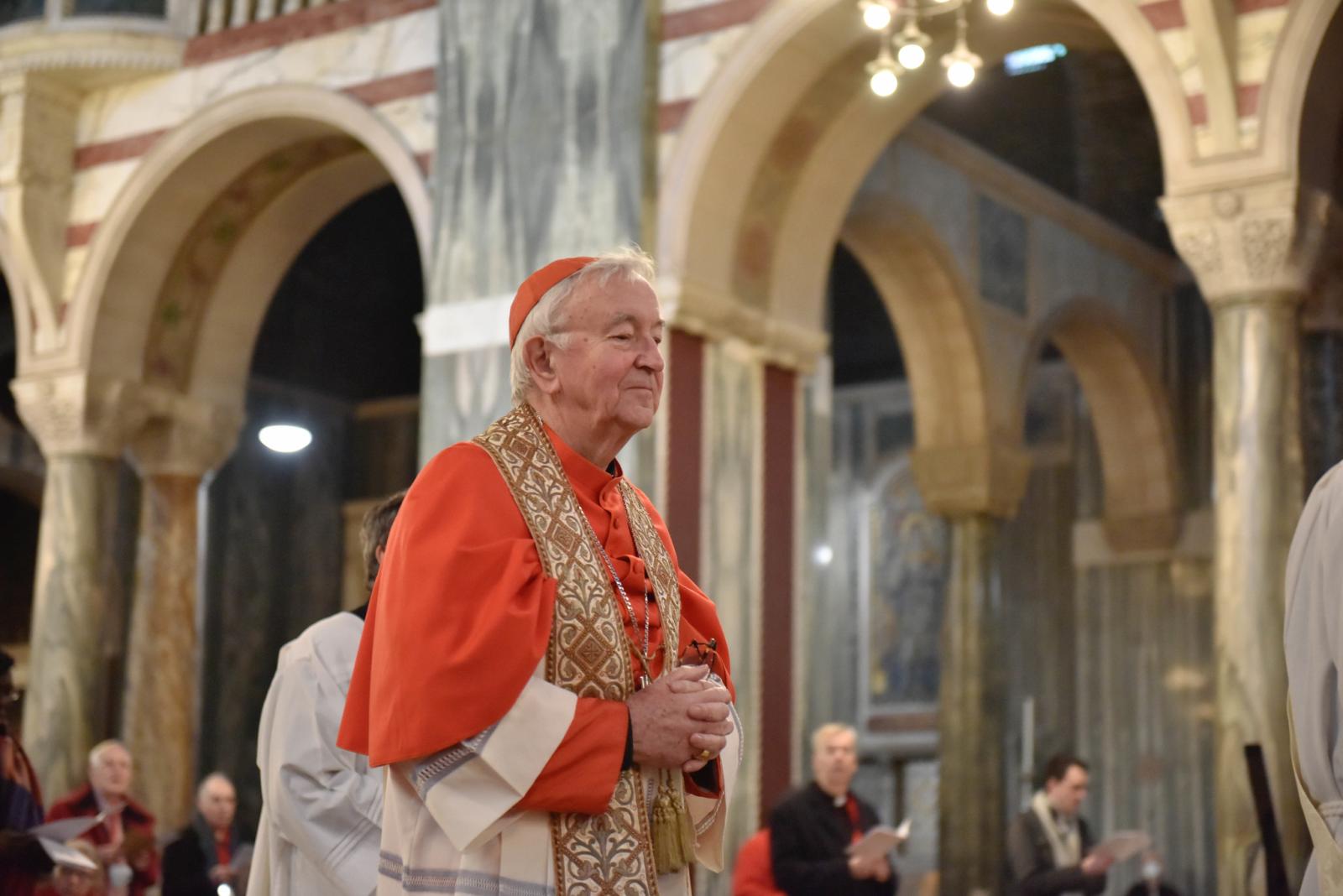Given at the end of the Synodal Gathering in Westminster Cathedral on Saturday 19th February 2022
First Reading: Acts 2.42-47;
Psalm 101
Gospel Reading: John 6.1-15.
The words we sang just now, in the Psalm, sum up for me the key thought for today.
'He, the Lord, is our God. He remembers his covenant forever' (Ps. 101).
Yes, it is the faithfulness of God on which I want to reflect for just a few moments. Today we take to heart that true and lasting faithfulness is proper to God alone. He alone is the faithful one, a faithfulness made visible in Christ Jesus.
In the reading from the Acts of the Apostles, we heard of a flowering of that faithfulness. It bore great fruit in the first gathering of the disciples of Jesus. They were bound together by such a strong sense of community. They shared everything in common. They reached out to the poor around them, sharing what they had with them. They were steadfast in prayer, knowing it to be their first duty and their source of energy. They were held in high regard by all around them.
Such a full flowering of the grace of God in the Church, the Body of Christ, has not been sustained across the centuries, nor, indeed, in our own day. Yet our very infidelities push us back to reliance on the faithfulness of God alone. 'He remembers his covenant forever.' God alone is the source of unfailing compassion and forgiveness. Our reality is somewhat different. We are a church of sinners. Indeed that title, 'a Church of sinners', is one in which we can rejoice, in which we can all find a true sense of belonging!
Now, the passage from the Gospel of St John, which we have heard, adds a further dimension. Remember that this Gospel was written decades after the Acts of the Apostles. It is already full of the tensions of the efforts to remain faithful to the Master while living in the ambiguities of the age. John the Evangelist chooses incidents from the life of Jesus, passed down and refined in an oral tradition, to illustrate important lessons.
Here, in this feeding of the multitude, he addresses the seeming impossibility of the mission given to the Church by Jesus. How can so many be fed? How can this Gospel be announced to the whole world? The mission is too great, the resources too few. Yet, in this great sign and demonstration of God's faithfulness, the few resources of a small boy prove to be sufficient. Indeed, in the hands of the Master, they yield an abundance of fruit.
'He, the Lord, is our God. He remembers his covenant forever' (Ps. 101).
The bread of this miracle carries us directly to the bread of the Eucharist, made present every day in our midst, in the celebration of the Mass. In these daily celebrations, into which we are caught up, we enter again the silent mystery of God's bounty. We have so little, yet we are granted so much! His call, his invitation, re-echoes around, across the ages, entering our hearts and filling us with his love and his joy. Today we resolve to be as faithful as possible to that invitation, to that mission.
Amen.
